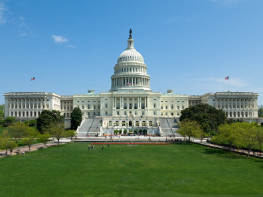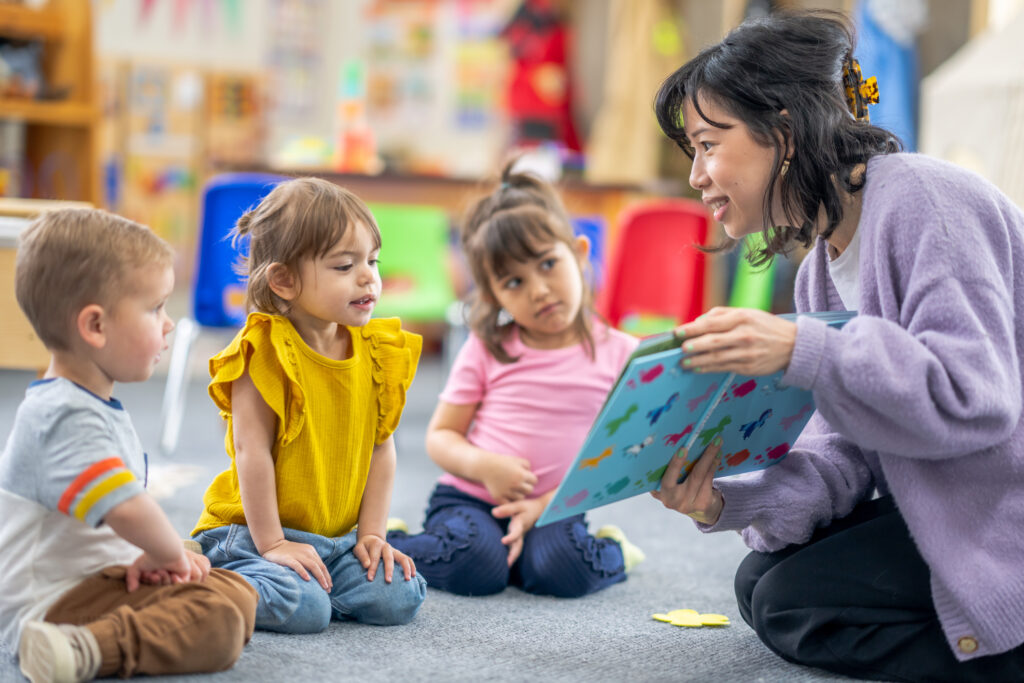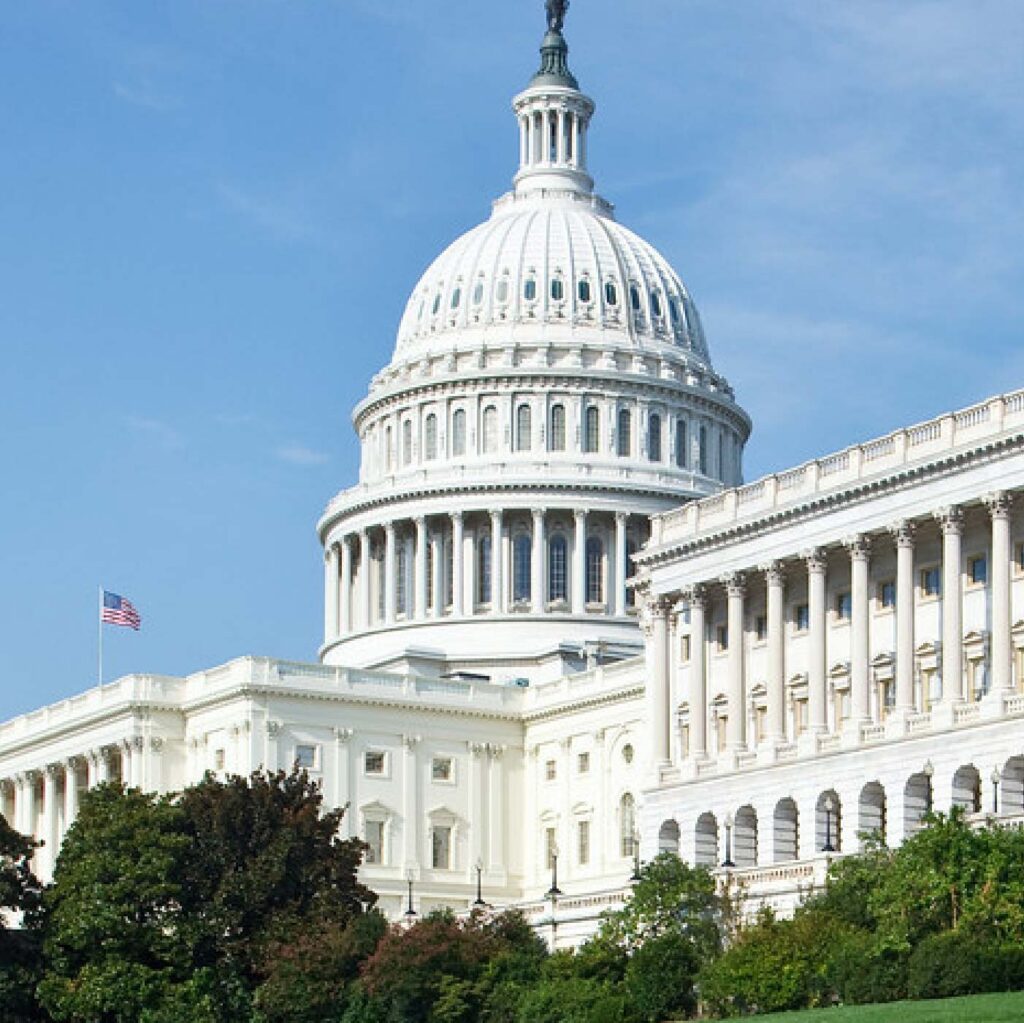FFYF Capsule Collection: Appropriations and Child Care

What Are Appropriations?
- “Appropriations” is the Congressional process which allocates funding for federal programs (such as the ones that provide the backbone of child care and early learning.) It usually kicks off each February, when the White House submits a budget request to Congress to outline the president’s spending priorities. From there, Congressional appropriators in the House and Senate decide program-by-program funding levels. (In an ideal world, Congress produces a budget resolution by October 1. In practice, the process may not be this clear-cut.)
- The budget produces 12 separate appropriations bills, each determined by a specific subcommittee which oversees budgeting for individual agencies. Child care and early learning bills are primarily funded through the Labor-Health and Human Services-Education and Related Agencies bill (often called “Labor-H”).
- Senate Appropriations is headed by Committee Chair Sen. Susan Collins (R, ME) and Ranking Member Sen. Patty Murray (D, WA), with its Labor-H Subcommittee headed by Subcommittee Chair Sen. Shelley Moore Capito (R, WV) and Ranking Member Sen. Tammy Baldwin (D., WA).
- House Appropriations is headed by Committee Chair Rep. Tom Cole (R., OK) and Ranking Member Rep. Rosa DeLauro (D., CT), with its Labor-H Subcommittee headed by Subcommittee Chair Rep. Robert Aderholt (R., AL) and Subcommittee Ranking Member Rep. Rosa DeLauro (D., CT).
In A Nutshell
Even with growing support from states, businesses and philanthropy, federal funding makes up the majority of investment in child care and early learning in the United States.
- The Child Care and Development Block Grant (or CCDBG) is the largest source of federal funding for child care. Congress sets the funding levels, then states have flexibility in how they use these funds to support early learning and care systems to best meet the needs of children, parents, and child care providers in their communities.
- Early Head Start and Head Start are also funded through appropriations and deliver comprehensive early learning, health, nutrition, and family support services for young kids, their families, and pregnant women.
- And programs like Preschool Development Grant Birth through Five (PDG B-5) help states collect data and build an infrastructure that ensures quality, safety, and efficiency between different child care options.
However, while federal investments for early learning and care have garnered strong bipartisan support for years, current federal investments only reach a fraction of income-eligible families.
Learn More – Resources
From topline to in-depth, these resources can be used in meetings with staffers, with reporters, or simply to get up to speed on the importance of federal funding to child care and early learning.
- Our “First Five Things about the Importance of Federal Funding” is our most topline look at how federal funding allocated by Congress fuels early learning and child care programs.
- The “ABCs of Federal Early Learning and Child Care Funding Streams” gives a detailed overview into the funding that supports the federal early learning and care programs that reach children from birth through age 5.
- This one-pager, “Federal Investments are the Foundation for State and Local Early Care and Education Programs,” provides a detailed look at how federal funding acts as the primary source of funding for public early learning and care programs.
- This “FY25 Early Learning and Child Care Appropriations Letters” details funding asks, including leading signers and funding amounts.
- And this “Funding for Key Early Learning Programs” chart provides our deepest dive into FY2025 funding specifics, including FY24 funding levels, White House asks, the child care community’s ask, and the House and Senate appropriators asks.
Community Support
- First Five Years Fund (FFYF) and a coalition of 36 national organizations signed a joint letter to Congressional appropriators calling for increased funding for federal early learning and care programs in FY2025, including the Child Care and Development Block Grant (CCDBG) program, Head Start and Early Head Start, the Individuals with Disabilities Education Act (IDEA), and the Preschool Development Grant Birth through Five (PDG B-5) program.
Voter Support
Voters believe federal funding for child care and early learning programs should be increased.
- A February 2025 poll shows child care expenses continue to be a major financial burden on working families.
- In the same poll, voters say improving access to affordable child care will both help lower costs for working families (85%) and improve the overall economy (71%).
- And a majority (55%) of Republican voters say increasing funding for and access to quality child care is as important for families as securing the border and stopping the increase of crime.
FY25: Congressional Support
FY25 Bipartisan Preschool Development Grant Birth through Five Letter
- Led by Representatives Joaquin Castro (D-TX) and Brian Fitzpatrick (R-PA)
- 94 signatures
- Ask: Fund the Preschool Development Grant Birth through Five (PDG B-5) program at a level of at least $500 million
FY25 Democrat Led Child Care & Development Block Grant Program (CCDBG) Letter
- Led by Representative Suzanne Bonamici (D-OR)
- 162 signatures
- Ask: Provide at least $12.4 billion for the Child Care and Development Block Grant (CCDBG).
FY25 Republican Led Child Care & Development Block Grant Program (CCDBG) Letter
- Led by Representative Burgess Owens (R-UT)
- 34 signatures
- Ask: Provide robust funding for the Child Care and Development Block Grant (CCDBG).
FY25 Democrat Led Head Start and Early Head Start Letter
- Led by Representative Jahana Hayes (D-CT)
- 179 signatures
- Ask: Provide $15.67 billion for Head Start in FY 2025.
FY25 Republican Led Head Start and Early Head Start Letter
- Led by Representative Pete Stauber (R-MN)
- 34 signatures
- Ask: Continue funding Head Start at the strongest level the Subcommittee deems possible.
FY 25 House Dear Colleague Letter Supporting Funding for Child Care Access Means Parents in Schools (CCAMPIS)
- Led by Rep. Bill Foster (D-IL)
- Signers coming soon
- Ask: Provide robust funding for the Child Care Access Means Parents in School (CCAMPIS) program
FY25 Senate Democrat Led Child Care & Development Block Grant Program (CCDBG), Head Start and Early Head Start Letter
- Led by Senator Bob Casey (D-PA)
- 45 Signatures
- Ask: provide the highest feasible funding for the Child Care and Development Block Grant (CCDBG), Head Start, Early Head Start, Preschool Development Grants, and early intervention services available through the Individuals with Disabilities Education Act (IDEA) Part C (Grants for Infants and Families) and Part B Section 619 (Preschool Grants)
Subscribe to FFYF First Look
Every morning, FFYF reports on the latest child care & early learning news from across the country. Subscribe and take 5 minutes to know what's happening in early childhood education.



